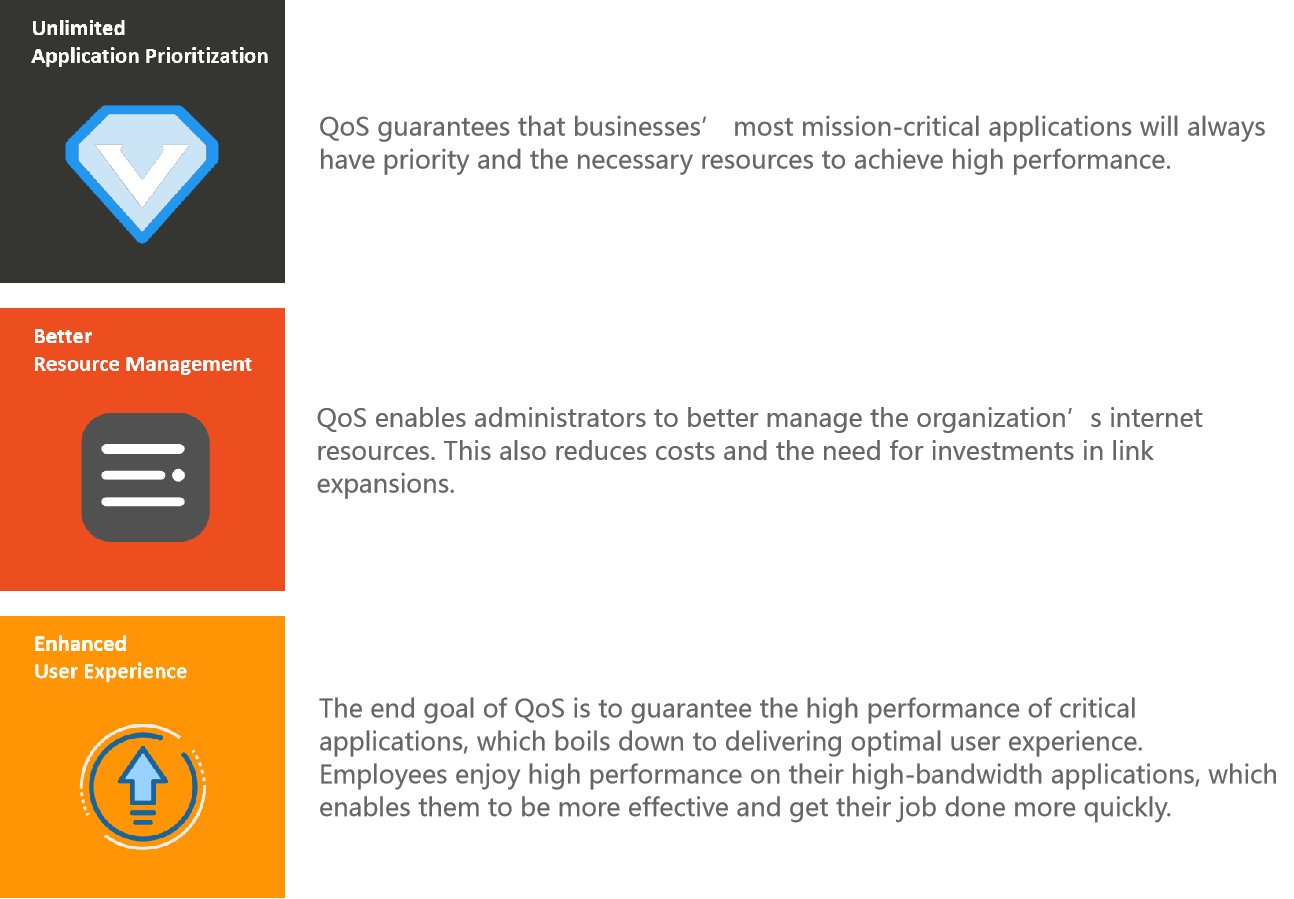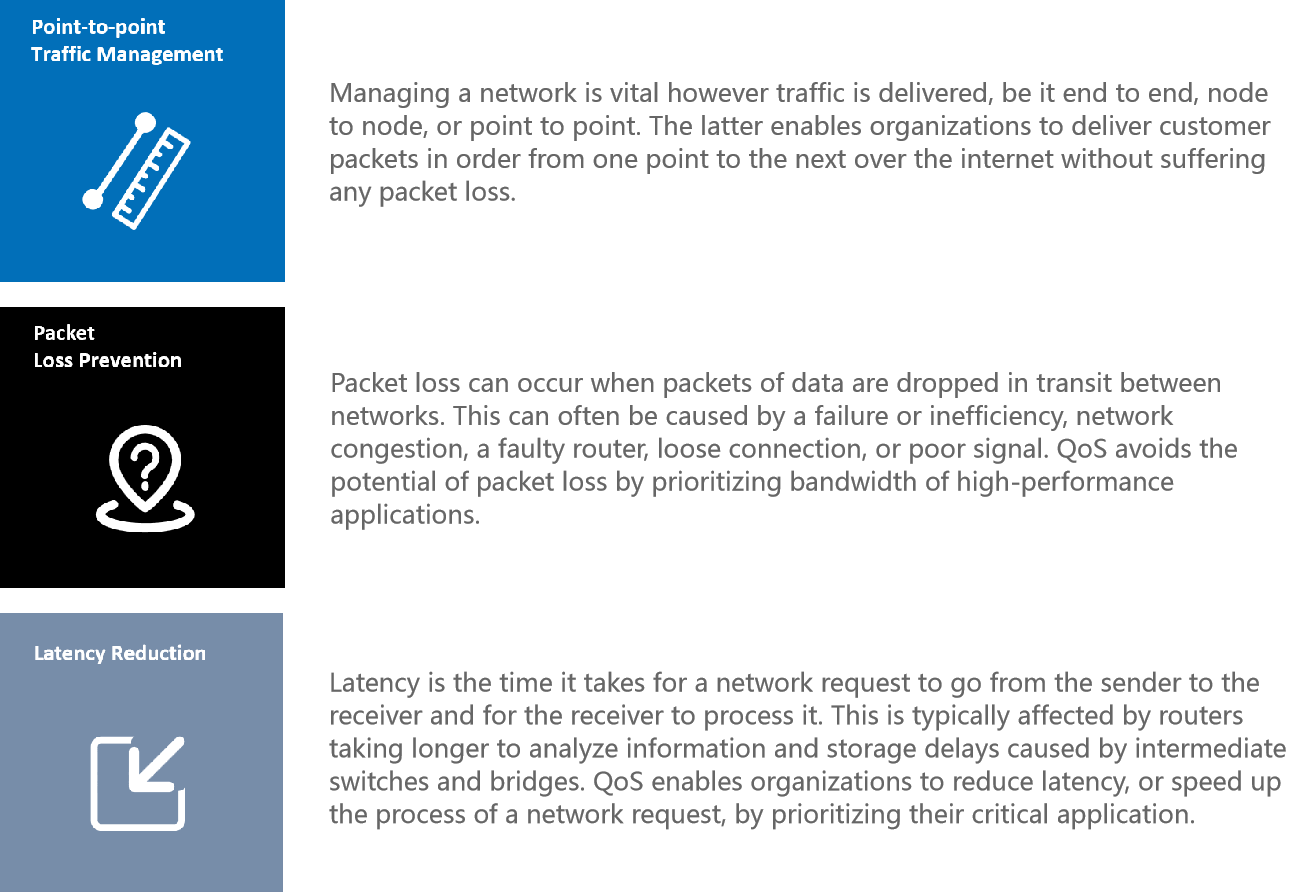WHY IS QOS IMPORTANT?
Traditional business networks operated as separate entities. Phone calls and teleconferences were handled by one network, while laptops, desktops, servers and other devices connected to another. They rarely crossed paths, unless a computer used a telephone line to access the internet.
When networks only carried data, speed was not overly critical. But now, interactive applications carrying audio and video content need to be delivered at high speed, without packet loss or variations in delivery speed.
QoS is particularly important to guarantee the high performance of critical applications that require high bandwidth for real-time traffic.
For example, it helps businesses to prioritize the performance of “inelastic” applications that often have minimum bandwidth requirements, maximum latency limits, and high sensitivity to jitter and latency, such as VoIP and videoconferencing.
QoS helps businesses prevent the delay of these sensitive applications, ensuring they perform to the level that users require.
For example, lost packets could cause a delay to the stream, which results in the sound and video quality of a video conference call to become choppy and indecipherable.
QoS is increasingly important as network performance requirements adapt to the growing number of people using them.
The latest online applications and services require vast amounts of bandwidth and network performance, and users demand they offer high performance at all times. Organizations, therefore, need to deploy techniques and technologies that guarantee the best possible service.
QoS is also becoming increasingly important as the Internet of Things (IoT) continues to come to maturity.
For example, in the manufacturing sector, machines now leverage networks to provide real-time status updates on any potential issues. Therefore, any delay in feedback could cause highly costly mistakes in IoT networking. QoS enables the data stream to take priority in the network and ensures that the information flows as quickly as possible.
Cities are now filled with smart sensors that are vital to running large-scale IoT projects such as smart buildings. The data collected and analyzed, such as humidity and temperature data, is often highly time-sensitive and needs to be identified, marked, and queued appropriately.
ADVANTAGES OF QOS
The deployment of QoS is crucial for businesses that want to ensure the availability of their business-critical applications. It is vital for delivering differentiated bandwidth and ensuring data transmission takes place without interrupting traffic flow or causing packet losses. Major advantages of deploying QoS include:


UTEPO provides managed switches with the QoS, if you have any demand for this part, you can contact us freely.
+86-755-83898016-863
+86-1501-2669-765
[email protected]
Note: To speed up our service to you, please make sure the field with " * " mark is filled before you click on "Submit" button, Thank you!